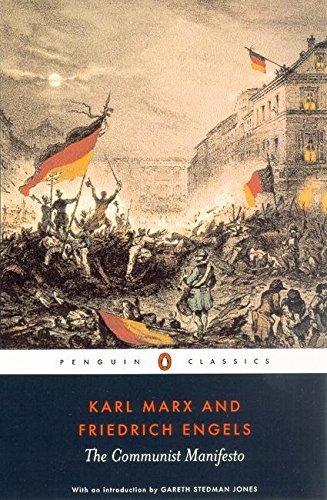Communist Manifesto is gud
4 stars
I think it's pretty good. It's pretty polemical and lays out the political goals of communists, it doesn't really get into Marxist philosophy and the methods in which Marx comes to his conclusions though. I'd probably recommend "Socialism: Utopian and Scientific" as a better introduction to Marxism.
I think it's pretty good. It's pretty polemical and lays out the political goals of communists, it doesn't really get into Marxist philosophy and the methods in which Marx comes to his conclusions though. I'd probably recommend "Socialism: Utopian and Scientific" as a better introduction to Marxism.



